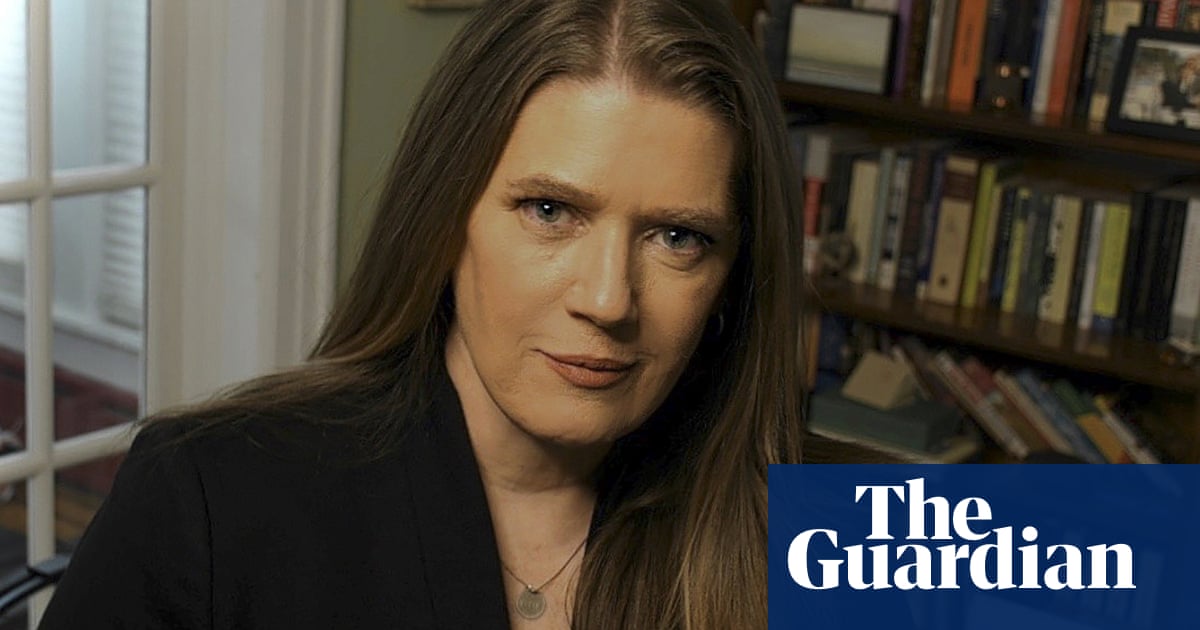In a new memoir, Mary L Trump, niece of Donald Trump, writes of being pushed to despair, and ketamine therapy, by her uncle’s victory in the 2016 presidential election, his chaotic, far-right administration, and his refusal to leave national politics despite his defeat by Joe Biden in 2020.
“I’m here because five years ago, I lost control of my life,” Mary Trump writes, describing ketamine treatment undertaken in December 2021. “I’m here because the world has fallen away and I don’t know how to find my way back.
“I’m here because Donald Trump is my uncle.”
Her doctor, she says, answered: “I’m sorry. That must be very difficult for you.”
Now 59, Mary Trump is a trained psychologist and bestselling author. Her new book, Who Could Ever Love You: A Family Memoir, will be published in the US on 10 September. The Guardian obtained a copy.
Donald Trump, 78, is the Republican candidate for president for a third successive election, despite having been convicted of 34 criminal charges arising from hush-money payments to an adult film star and facing as many as 44 other felony charges, concerning retention of classified information and election subversion culminating in his incitement of the deadly January 6 attack on Congress.
Trump has also been ordered to pay hundreds of millions of dollars in civil suits concerning business fraud and defamation arising from a rape allegation a judge called “substantially true”.
Despite it all, he remains locked in a tight race with Kamala Harris, the vice-president and Democratic presidential nominee.
Mary Trump’s first book, Too Much and Never Enough: How My Family Created the World’s Most Dangerous Man, was published to acclaim and huge sales in 2020, as her uncle sought re-election. A second book, The Reckoning: Our Nation’s Trauma and Finding a Way to Heal, followed in 2021, when Donald Trump was contemplating the third presidential run that now nears completion.
Mary Trump’s third book chiefly concerns her unhappy life as a granddaughter of the New York property magnate Fred Trump Sr and daughter of Fred Trump Jr, Donald Trump’s older brother who died aged 42 in 1981.
Who Could Ever Love You follows on the heels of a strikingly similar memoir, All in the Family: The Trumps and How We Got This Way, by Fred C Trump III, Mary Trump’s now estranged older brother.
That book also depicted the byzantine and cruel dynamics of Trump family life, including startling descriptions of callous behavior by Donald Trump including alleged racism and a supposed suggestion, while president, that his nephew should let his severely disabled son die and then “move down to Florida”.
A spokesperson for the former president dismissed Fred C Trump III’s book as “completely fabricated and total fake news of the highest order”. Hostility to Mary Trump has included an unsuccessful attempt to stop publication of her first book.
Now, Mary Trump depicts familiar scenes of casual cruelty involving her uncle, his siblings and their father, who died in 1999. She also discusses how her uncles and aunts sought to disinherit her, threatening health insurance vital to the care of her disabled nephew; proliferating family lawsuits; and ultimately her role as a source for New York Times reporters who in 2018 published a devastating exposé of Trump family tax affairs that prompted another suit.
As books about Donald Trump continue to sell, so the Times exposé will soon be the subject of its own book, Lucky Loser: How Donald Trump Squandered His Father’s Fortune and Created the Illusion of Success, due out in mid-September.
Mary Trump’s work with the Times led her to write Too Much and Never Enough, which she now says “launched me into the national conversation about my Uncle Donald”. Fame came with benefits, Trump writes, making her a “public person” who people saw “on television several times a week”. But she also found herself under pressure, “juggl[ing] requests for interviews, fundraisers, and endorsements … expected to be media savvy”.
Amid it all, she was unable to forget the simple misery of being a Trump. Just saying Donald Trump’s name, she writes, “reminded me of all the times, at a restaurant or a store, that I’d used a credit card and was asked, ‘Are you related?’ I always said, ‘No.’ And the response was always some version of, ‘Don’t you wish you were?’”
after newsletter promotion
Mary Trump says she first turned to writing while at a facility in Tucson, Arizona, in 2017, for “intensive trauma treatment”.
“In one exercise,” she writes, “I was asked to write six reasons I wanted to stay in treatment. For number six I wrote: ‘I want to live.’”
Years later, she writes, she turned to therapy using ketamine, a synthetic drug defined by the US Drug Enforcement Agency as a “dissociative anesthetic hallucinogen” and is approved to treat depression, if not without attracting controversy over potential misuse.
Having been driven to ketamine therapy by “a shame that proved impossible to disassociate myself from”, Trump writes that the drug left her feeling “high”, and “lighter than I had in a very long time, almost euphoric”.
“Anything seemed possible,” she writes. “I made connections in my mind. I made plans. I saw potential.”
Nonetheless, she writes that she started writing her third book “because I realized I was killing myself – with stress, with self-loathing, but above all with isolation that started on 9 November 2016” – the day after her uncle won the White House.
“But I don’t want to die,” Mary Trump writes, in a book to be published two months before election day.
“I want to live.”
